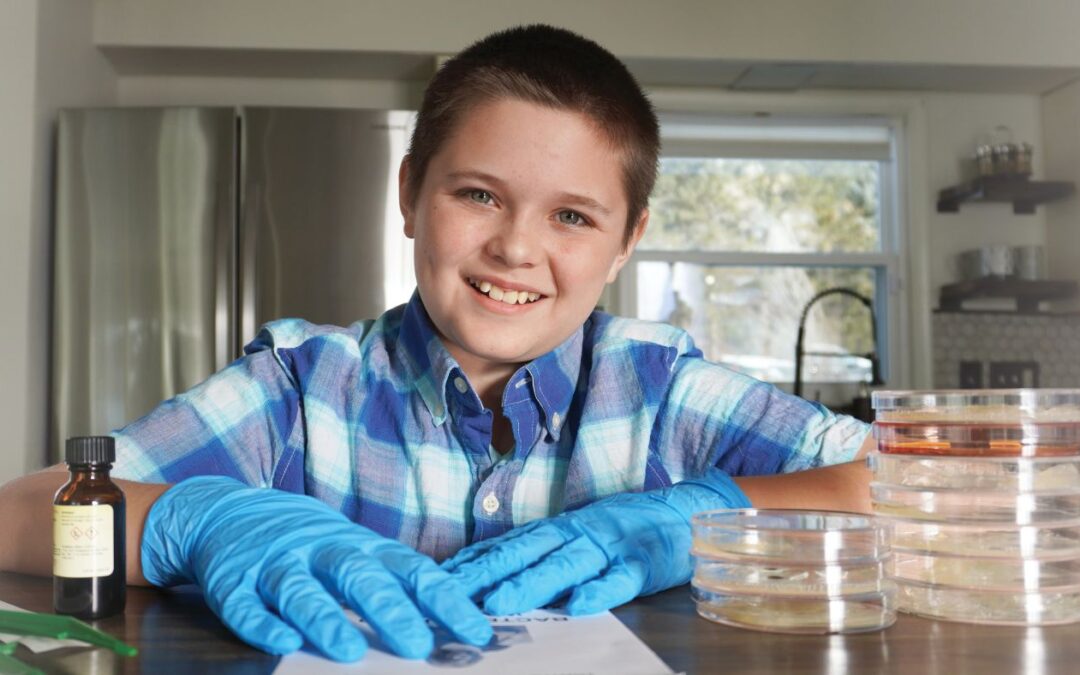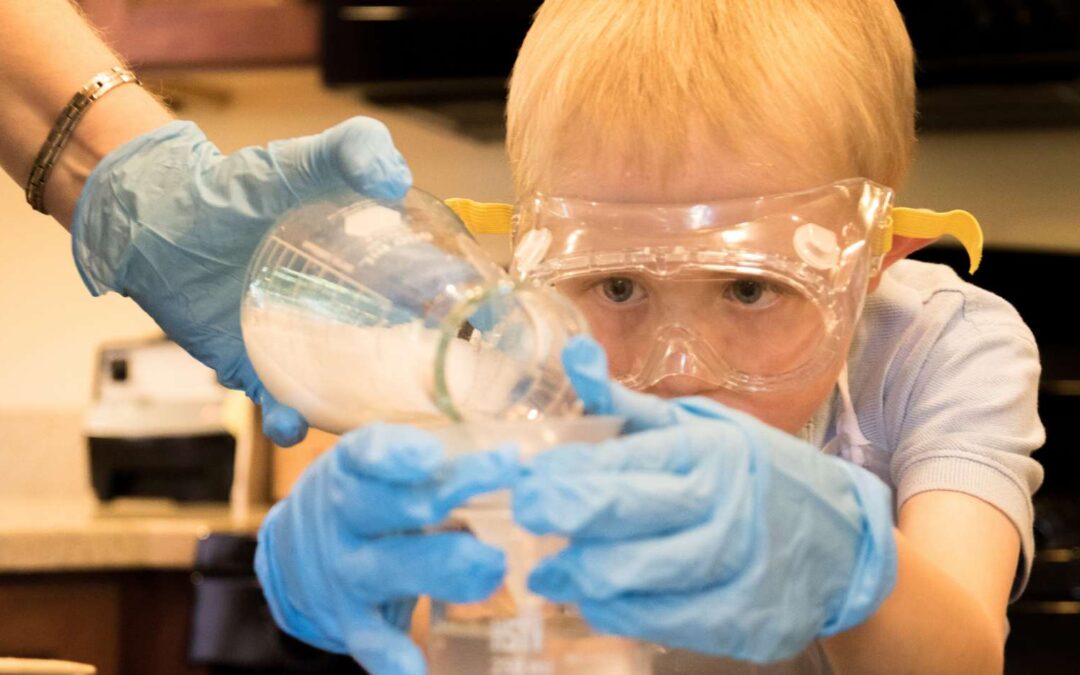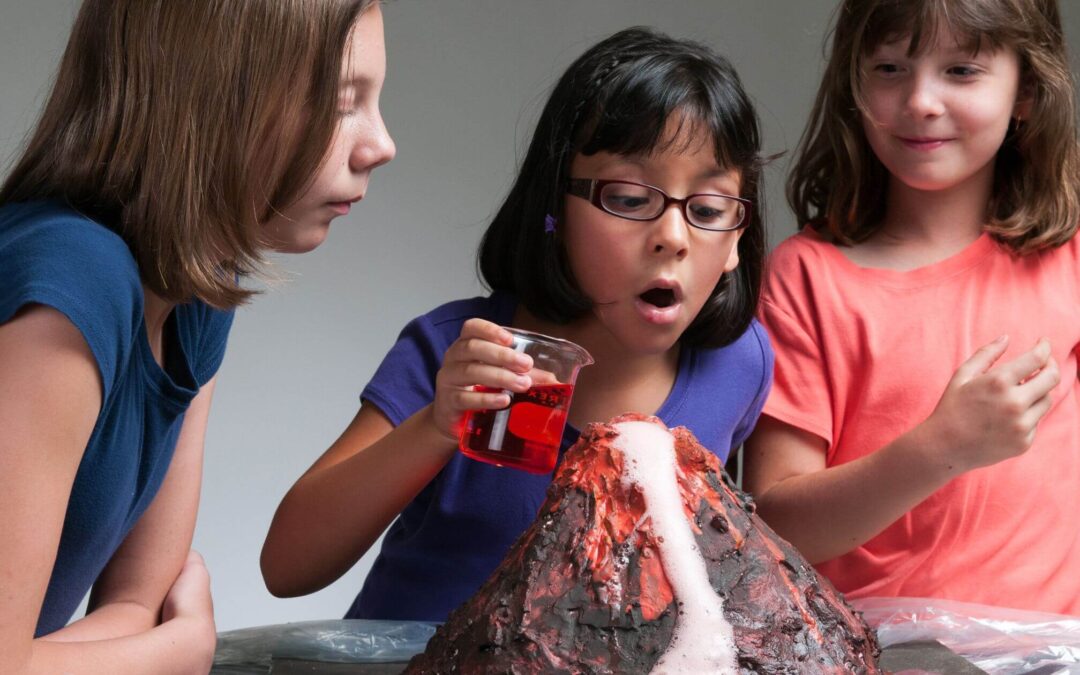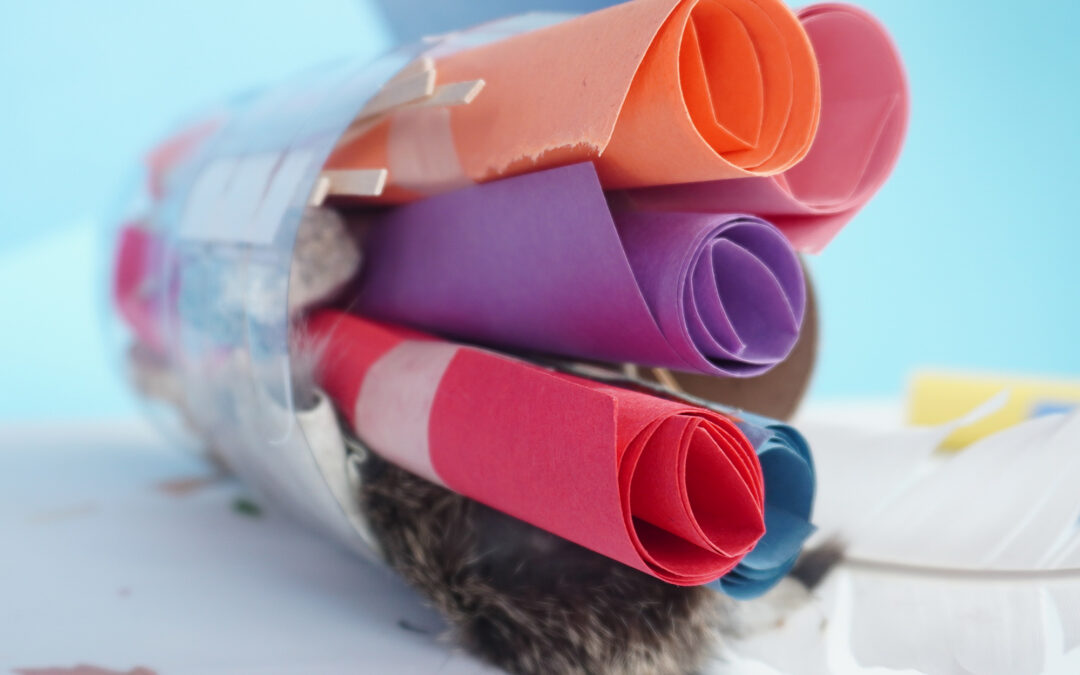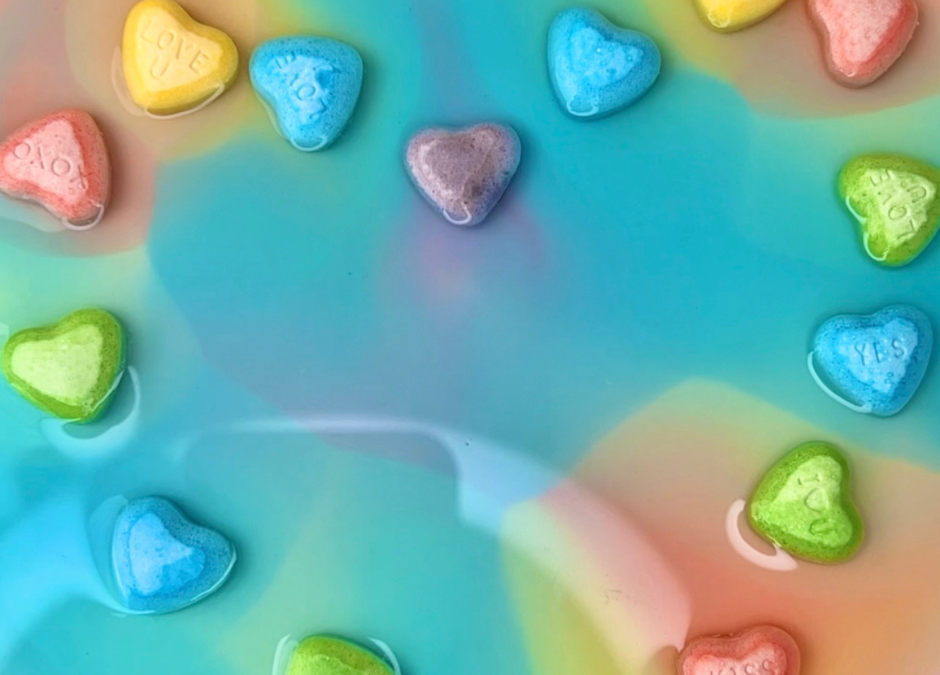Photosynthesis is the process in which green plants (primarily) convert energy from the sun’s light into usable, chemical energy. Plants require energy for growth, reproduction, and defense. Excess energy, created from photosynthesis, is stored in plant tissue as starch. Starch is a white and powdery substance. It houses glucose, which plants use for food. The presence of starch in a leaf is reliable evidence of photosynthesis. That’s because starch formation requires photosynthesis.
(Adult supervision required.)
Starch Testing Experiment
What You Need:
- Two plants
- Beaker or glass jar
- Saucepan on the stove
- Ethyl alcohol
- Iodine solution
- Tweezers
Test for starch in plants:
1. Place one of the plants in a dark room for 24 hours; place the other one on a sunny windowsill.
2. Wait 24 hours.
3. Fill the beaker or jar with ethyl alcohol.
4. Place the beaker or jar in a saucepan full of water.
5. Heat the pan until the ethyl alcohol begins to boil.
6. Remove from the heat.
7. Dip each of the leaves in the hot water for 60 seconds, using tweezers.
8. Drop the leaves in the beaker or jar of ethyl alcohol for two minutes (or until they turn almost white).
9. Set them each in a shallow dish.
10. Cover the leaves with some iodine solution and watch.
What Happened:
The hot water kills the leaf and the alcohol breaks down the chlorophyll, taking the green color out of the leaf. When you put iodine on the leaves, one of them will turn blue-black and the other will be a reddish-brown. Iodine is an indicator that turns blue-black in the presence of starch. The leaf that was in the light turns blue-black, which demonstrates that the leaf has been performing photosynthesis and producing starch.
Try the test again with a variegated leaf (one with both green and white) that has been in the sunlight. A leaf needs chlorophyll to perform photosynthesis — based on that information, where on the variegated leaf do you think you would find starch?
Buy Testing For Starch Experiment Kit

